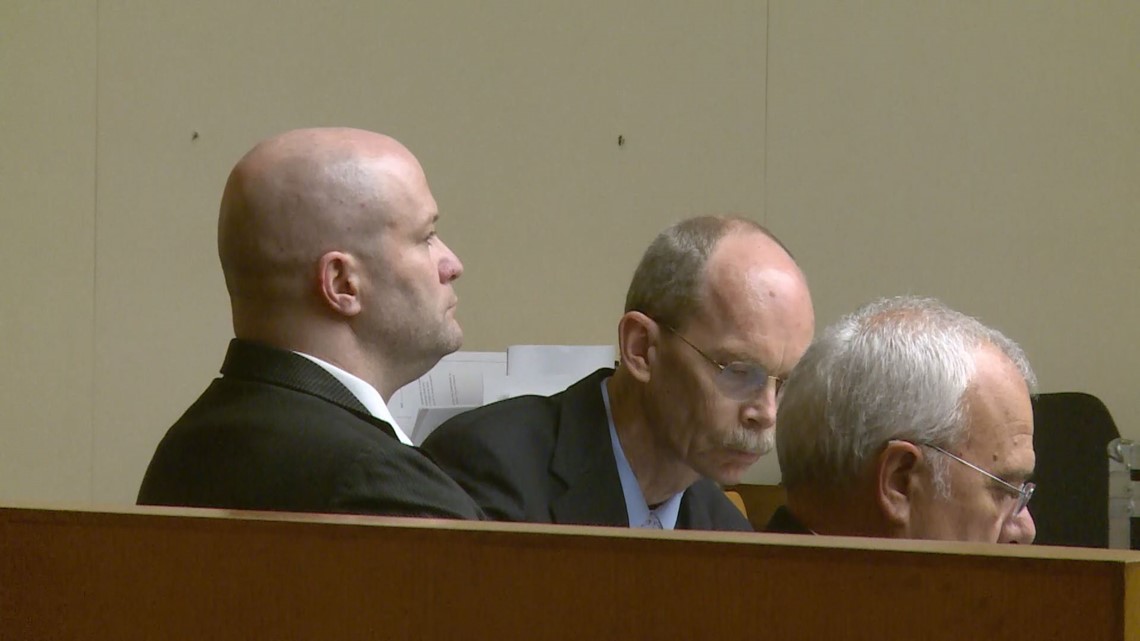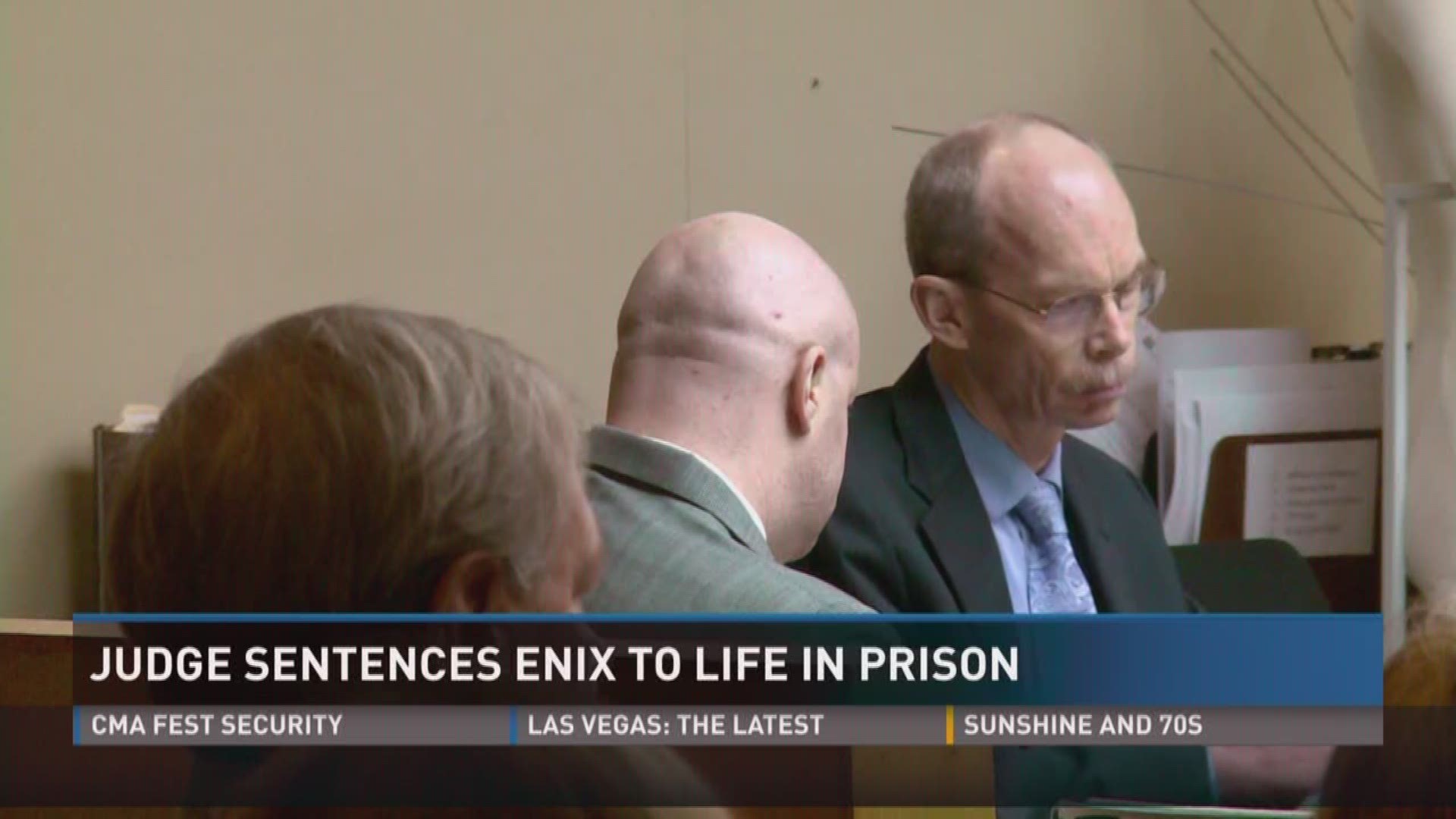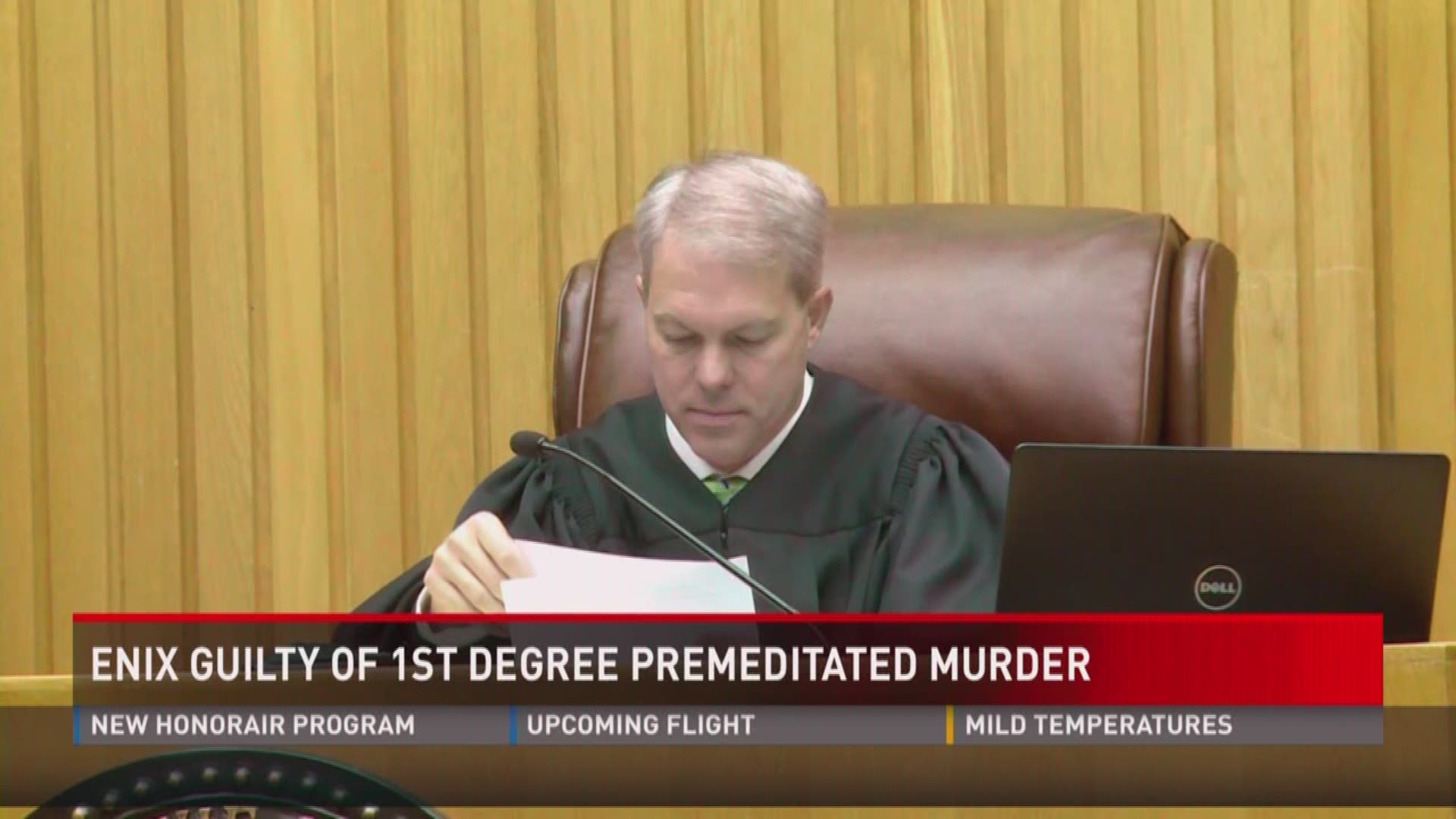KNOXVILLE, Tenn. — Tyler Enix got a fair murder trial and was properly convicted of stabbing his ex-wife dozens of times in 2015 until she died in her Knoxville home, the Tennessee Supreme Court has ruled.
The state's five justices turned back Enix's claims of prosecutorial misconduct in a unanimous decision filed Tuesday. The court said it wanted to clarify a legal point about instances when a defendant fails to raise an objection about something a prosecutor said to the jury during his closing statement but then later raises the objection on appeal.
Enix stabbed Kimberly Enix 47 times in October 2015 in her Fountain City home, testimony showed. He was a jealous, possessive, angry ex-husband who took out his rage on his former wife, evidence showed.
Then, after murdering Kimberly Enix, he took their toddler daughter and fled to Ohio before being spotted by a citizen, who alerted authorities.
The 43-year-old man is serving a life sentence plus 25 years at Bledsoe County Correctional Complex, according to prison records.
After sentencing by Criminal Court Judge Steve Sword, Enix's legal team filed an appeal, citing a handful of instances in which they said Knox County prosecutors acted improperly while delivering the state's closing argument.
The defense, for example, argued the prosecutor pounded on the table repeatedly to underscore the many times Enix stabbed his ex-wife, violating his rights.
In another instance, the defense argued the prosecution said in closing arguments that Enix was a coward, an improper and prejudicial characterization.
The defense, however, didn't formally object to those points at trial, the Supreme Court justices noted. And Sword denied the defense's bid for a new trial on the points that they did raise.
As a matter of practice, the defense is assumed to have waived points they can appeal if they don't raise an objection during trial.


It's called a "contemporaneous objection." Essentially the rule is, Object at trial, and even if the trial judge doesn't support your objection you can still make it part of your appeal.
Case law says the defense can't really make an argument of prosecutorial misconduct without having objected at trial unless what the prosecutor said amounted to what's called "plain error," or something that is obviously wrong in the trial record and substantially harms a defendant's rights.
In Enix's case, the justices said, that didn't happen.
"Instead, even assuming all of these alleged errors are considered cumulatively, we conclude that no substantial right of the Defendant was adversely affected by the claimed errors," Justice Jeff Bivins wrote.
"For a 'substantial right' of the accused to have been affected, the error must have prejudiced the appellant. In other words, it must have affected the outcome of the trial court proceedings."
The state put on plenty of evidence that Enix was the killer, the justices noted, from his DNA recovered from under the victim's fingernails to the blood stain on his jeans to his own blood found on tissues in the victim's downstairs bathroom.
"In light of this abundant evidence, the Defendant has failed to show that the alleged prosecutorial misconduct affected the outcome of the trial court proceedings," the court wrote.


